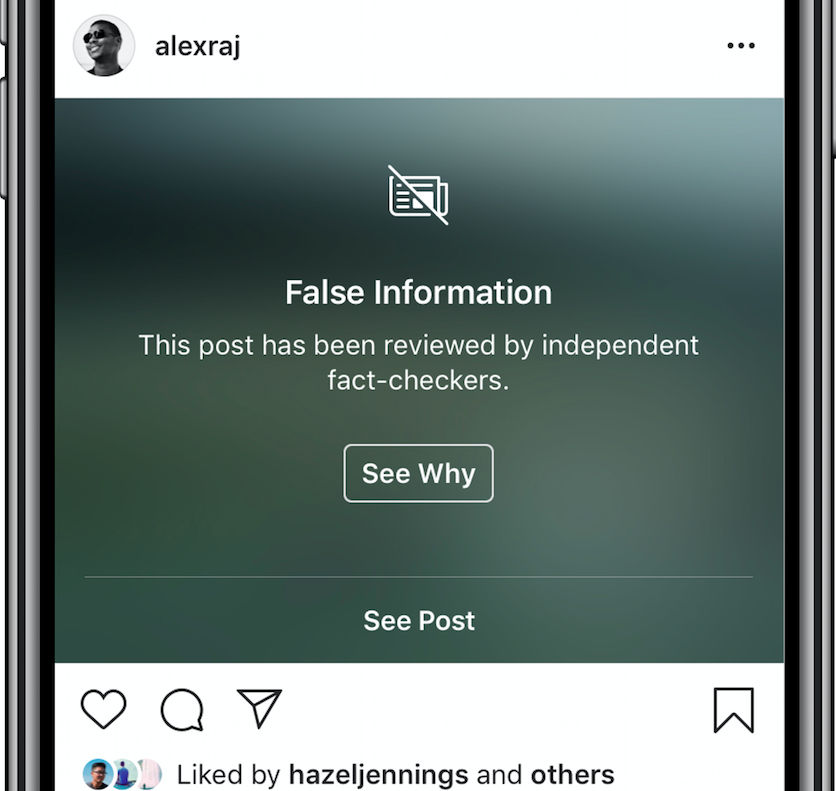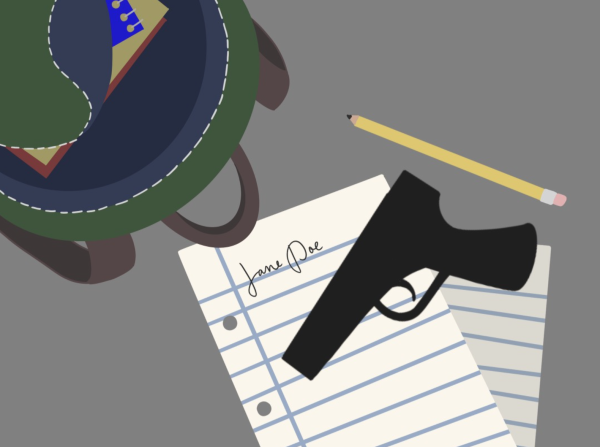Should Instagram fact check?
In the last few years, “fake news” has become a household topic. Even President Donald Trump promotes the idea of falsified facts. But there is an issue born from the overabundance of alleged false information, it has become hard to tell what really is fake and what is true, especially on social media platforms like Instagram.
In 2016, Facebook launched its fact-checking initiative due to the presidential election and the Russian IRA scandal. A few years later, Instagram followed suit. Both Instagram and Facebook now have a system in place which allows users to report what they think is fake news. At this point, the post may be reviewed by “third-party fact-checkers across the globe” (Instagram.com). These fact checkers are from over 25 business partners in 14 different countries.
Once the post is verified to be false, it receives a flag that warns viewers that the information contained may not be accurate. The post then gets removed from any explore pages or hashtags, which prevents the post from showing up in searches.
Pros:
Between Russia’s IRA and anti vaxxers, falsified news can be very dangerous. Instagram and Facebook are significantly lowering this risk by implementing fact-checkers.
The social media giants have made sure that the fact-checkers are non-partisan and committed to catching false information, regardless of where it is from.
Fact-checkers are incredibly important in stopping the flow of fake news and they also help build trust in viewers. If the news is flagged whenever fake, people will no longer be able to claim that factually accurate reports are false. This in turn would lead to more productive debates in the political world, and viewers making more informed decisions on who and what to vote for and what information to trust.
Cons:
On the other hand, Instagram and Facebook fact-checking can be harmful to viewers.
Because viewers now know that these sites are fact-checking, it could be assumed that if the information is not flagged, then it is entirely accurate. This can be dangerous for consumers of un-flagged false media.
Although the number of fact-checkers is continuing to grow, there are not enough to catch every piece of false information, and the process for verifying claims on social media contains too many variables to be done by robots.
For example, a fact-checker must first identify if the alleged post is meant to be a joke or satire. Next, they must figure out if the claim might be accurate, but out of context. This covers thousands of posts, as it is easy to take words out of contest and contort their meaning. Fact-checkers have to ask themselves, what constitutes a lie of omission that deserves to be flagged?
Finally, the post’s claim must be run through a series of tests to figure out if any source can verify the information.
If a source is provided, that too must be checked with the above process. This laborious process has to be done manually.
If there are fact-checkers, but they cannot identify all of the false information, is it worth tricking viewers into thinking that they are consuming entirely accurate facts?

Clair Sapilewski is the Managing Editor and is in Journalism II this year. This is her third year writing articles for The NDB Catalyst.
She...





